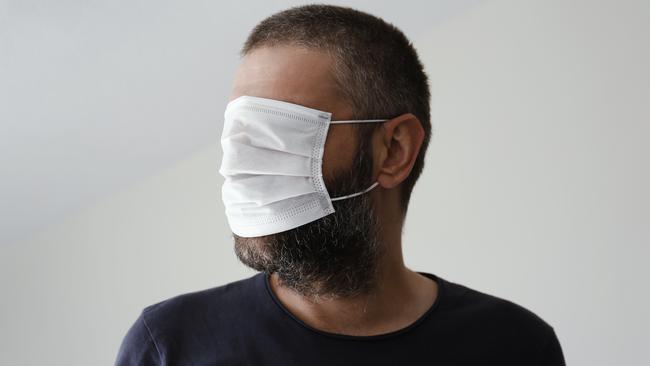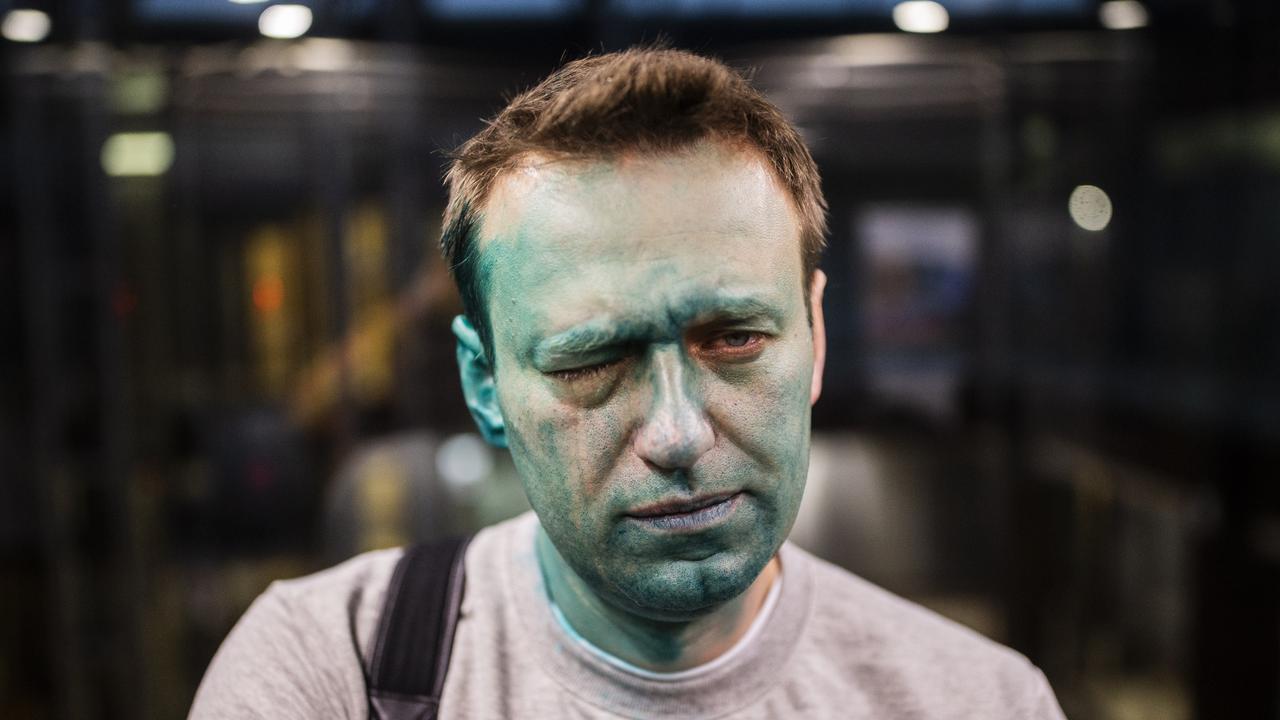In a global pandemic, laughter is still the best medicine
Evidently, what the world needs now is jokes and the good news is there’s no shortage.

Barry Cryer, a scriptwriter and comedian who, since the death of Ken Dodd, is the man who knows more jokes than anyone else on Earth, has just called me with his present favourite. An airline pilot is speaking to his passengers: “Our cruising altitude today is 35,000ft, the weather is set fair, with just the possibility of light turbulence, so do keep an eye on the fasten seatbelts sign, and enjoy the flight. In accordance with government guidelines, I’m working from home.”
The oldest joke on record dates from the Old Babylonian period, around 2300BC, and features a young wife breaking wind in front of her husband. Bodily functions have long been a feature of jokes. And still are. Cryer reminded me that back in the day you would cough to cover up a fart. Now, with Covid-19, you fart to cover up a cough.
Shakespeare’s plays are awash with lewd jokes and toilet humour and some of it still works. In Twelfth Night when Malvolio is deciphering the letter he believes Olivia has sent to him, he muses happily: “By my life, this is my lady’s hand: these be her very C’s, her U’s, and her T’s; and thus makes she her great P’s.” (As Frank Carson, the Irish comedian, used to say, “It’s the way you tell ’em.”)
Shakespeare used variations of his favourite joke at least eight times in different plays. “Is this your daughter?” asks one character. “So her mother told me,” replies the other. He also favoured a pun at every opportunity, even in unlikely circumstances. In Romeo and Juliet, as Mercutio lies dying he quips: “Ask for me tomorrow, and you shall find me a grave man.” (That reminds me: What’s the difference between Covid-19 and Romeo and Juliet? One’s a coronavirus and the other’s a Verona crisis.)
The last time British theatre was shut down for any extended period was during Oliver Cromwell’s Commonwealth, when the theatres were compulsorily closed and jokes officially frowned on. When the theatres reopened after 18 dark years, the country literally burst out laughing. Restoration comedy was born and playwrights such as Congreve, Wycherley and Farquhar had the nation rolling in the aisles as never before with racy romps riddled with wit and wordplay.
In the 18th century it was the gentlemen playwrights who were conjuring up jokes (many of them blatantly sexist). In the 19th century the birth of the music-hall brought working-class comedians centre stage. Dan Leno, champion clog-dancer of the world, was the biggest star of the Victorian age. When he played dame in pantomime he always came on flustered and with the same line: “Oh, I feel just like a cup of tea – sloppy, wet and hot.” One hundred years later, Terry Scott as dame was using the same joke. “We don’t own the jokes,” Cryer explains, “we just lease them for a while.”
The Victorians also gave us the Christmas cracker, notorious from the start for the uneven quality of the jokes and riddles that accompanied them. Tom Smith launched his cracker business in 1847 and chose the jokes personally. On grounds of good taste, he is said to have rejected one of my favourites: “What does Queen Victoria do when she burps? She issues a royal pardon.”
It was the advent of advertising that truly democratised the joke. In Macbeth, Shakespeare has the Porter cry, “Knock, knock, knock! Who’s there?” But it was not until the 1930s that the knock-knock joke became universal. An American roofing company ran a newspaper advertisement that began: “Knock knock! Who’s there? Rufus. Rufus who? Rufus the most important part of your house!” At the same time seed companies in the US selling corn-seed by mail order featured jokes in their catalogues – and the jokes were so bad that the word “corny” came into being to describe them.
In the 1970s I started collecting jokes when my children were small and I was retained to create a series of mini joke books to promote Kellogg’s breakfast cereals. They had to be family-friendly jokes with guaranteed snap, crackle and pop. My best effort, I recall, was inspired by the recent moon landings. “There’s a new restaurant on the moon,” I announced. “Great food, but no atmosphere.”
Collecting jokes over the past 50 years I have seen the passing fashions. In the 1960s, when New York comedian Lenny Bruce was at the height of his notoriety, sick jokes were all the rage. (“Where does a horse go when it gets sick? The horse-pital! Just kidding – it gets shot.”). In the 1970s jokes based on graffiti were all the rage. (“Down with graffiti! Down with all Italians!”). In the 1980s there was a curious fascination with people’s names. (“What do you call a bloke with a plank on his head? Ed-wood!”; “What do you call a girl with two toilets on her head? Lulu!”)
Forty years ago I worked with the comedian Bernard Manning, whose timing was expert, but whose material was totally unacceptable even then. Happily, the jokes my grandchildren (ranging in ages from 16 to four) share with me are totally devoid of racism, sexism or xenophobia – mainstays of the gags of the Manning generation. When I worked with the black comedian Charlie Williams in the 1980s, he always included this line in his act: “If you don’t laugh, lady, I’m going to move into the house next door.” It makes us cringe now; it had the audience roaring then.
Sigmund Freud, the founder of psychoanalysis, wrote in his 1905 book Jokes and Their Relation to the Unconscious that jokes allowed us to explore feelings we might otherwise suppress. They help us to overcome our inhibitions. According to Ken Dodd, the funniest joker I ever saw on stage: “The trouble with Freud is he never played the Glasgow Empire on a Saturday night.”
When once I asked Dodd about that line, he said: “It’s a gag, that’s all. To be honest, I think Freud was probably on to something. We tell jokes about things we worry about.”
“Like sex, in your case?” I suggested. “Exactly,” Ken said and he was off. “Do I believe in safe sex? Of course I do. I have a handrail around the bed. You know, I used to think I was a marvellous lover – until I discovered all my girlfriends suffered from asthma.”
Evidently, what the world needs now is jokes and the good news is there’s no shortage. In fact, according to Cryer, there are so many coronavirus jokes, it’s a positive pundemic. (Sorry, but don’t forget: even the bad ones are good for you.)
GYLES BRANDRETH’S FAVOURITE JOKES
I have kleptomania. But when it gets bad, I take something for it.
What’s the best thing about Switzerland? I don’t know, but the flag is a big plus.
Did you hear about the mathematician who’s afraid of negative numbers? He’ll stop at nothing to avoid them.
I invented a new word: plagiarism!
I told my wife she was drawing her eyebrows too high. She looked at me surprised.
Helvetica and Times New Roman walk into a bar. “Get out of here!” the bartender shouts. “We don’t serve your type.”
Did you hear about the two people who stole a calendar? They each got six months.
Why did the scarecrow win an award? Because he was outstanding in his field.
I want to die peacefully in my sleep, like my father. Not screaming and terrified like his passengers.
I’ve read a book about Stockholm syndrome. It started off badly, but by the end I really liked it.
There was an elderly couple who noticed they were getting more and more forgetful, so they decided to visit their doctor. The doctor told them they should start writing things down so they wouldn’t forget them. They went home and the old lady told her husband to get her a bowl of ice cream. “You might want to write it down,” she said. The husband said: “No, I can remember you want a bowl of ice cream.” She then told her husband she wanted a bowl of ice cream with whipped cream. “Write it down,” she told him, and again he said: “No, no, I can remember: you want a bowl of ice cream with whipped cream.” Then the old lady said she wanted a bowl of ice cream with whipped cream and a cherry on top. “Write it down,” she told her husband and again he said: “No, I’ve got it. You want a bowl of ice cream with whipped cream and a cherry on top.” So he goes to get the ice cream and spends an unusually long time in the kitchen. Eventually, he comes out to his wife and hands her a plate of bacon and eggs. The old lady stares at the plate for a moment, then looks at her husband and asks: “Where’s the toast?”
Knock! Knock!
Who’s there?
Control Freak.
Cont-
OK, now you say, “Control Freak who?”
What’s Black and White and Red All Over? The Best Worst Joke Book in the World!
by Gyles Brandreth is published by Puffin, $19.99.


